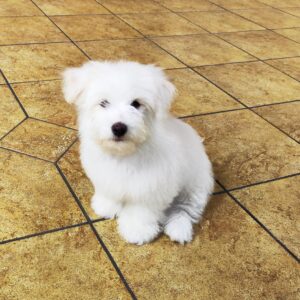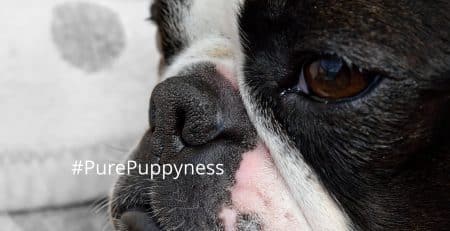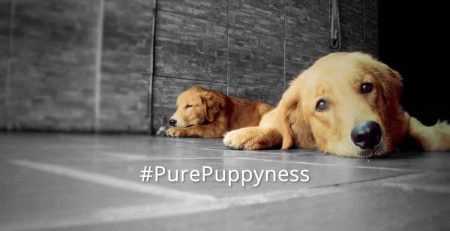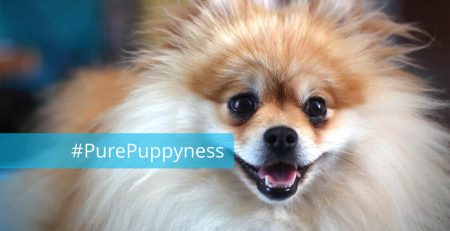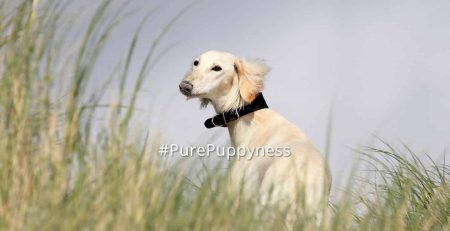History of the Coton de Tulear
When you think of African dog breeds, your mind will probably go to the Rhodesian Ridgeback, bred to hunt lions, or to the majestic Azawakh, used to guard livestock in West Africa. You might not think of a small, fluffy dog that originated in Madagascar: the Coton de Tulear, affectionately known as the Cotie or Coton.
To Madagascar and back
It’s uncertain exactly where the Coton de Tulear’s ancestors came from. Some speculate that during the 16th and 17th centuries, ladies on sea voyages took their little white dogs (perhaps the Tenerife dog, the Maltese terrier, or the Bichon Frise) with them, or that these dogs were used to hunt rats on the ships. Another story is that a handful of white dogs were washed up on the shores of Madagascar, the only survivors of a devastating shipwreck.
Whatever the case may be, once these little dogs arrived on Madagascar, they settled in surprisingly well. Some lived on the streets, while others were favoured by nobility and were kept as pets. The name Coton de Tulear refers to the port city of Tulear, now called Toliara, where the breed thrived.
There and Back Again
Eventually, the Coton de Tulear came to Europe in the 1970s. Dr Robert Jay Russell discovered the breed in Madagascar in 1973 and brought the first ones to America, nicknaming them the “Royal Dog of Madagascar”. A Frenchman visiting Madagascar brought some of these dogs to France, and worked to establish them as a breed. Not long after, the Coton de Tulear was brought across the Atlantic to North America, where Dr Russell established the Coton de Tulear Club of America in 1976.
Today the Coton de Tulear is beloved not just in Madagascar, but around the world. They are particularly popular in the USA for their sweet and cuddly personalities.
Appearance
The Coton de Tulear is a small dog, with a dark nose (though pink noses aren’t unheard of), floppy ears, and rounded eyes. “Coton” means cotton, and this is a perfect descript for the breed’s soft, fluffy coat. The breed is considered hypoallergenic, as they do not shed and produce minimal dander; however, they need a lot of grooming to keep their coats in good condition.
The Coton de Tulear’s soft coat comes in white, black and white, tricolour, or white with tan patches; however, a puppy’s initial colour often fades as they age.
Personality
The Coton de Tulear was bred to be a companion dog, and it shows. This breed is affectionate, intelligent and playful. They are eager to please, and take well to training. They love meeting people, including children, and often get on well with other animals. The Coton enjoys being active, and loves swimming and running, and often does well at canine agility and obedience. They are often more active in the evening, which is perfect for those who love long evening walks. All these traits mean that the Coton de Tulear is suitable for most dog owners, be they beginners or old hands at dog owning.
Be warned that this breed sometimes suffers from separation anxiety. They may also be suspicious or shy if not socialised properly, so make socialisation a priority for your Coton de Tulear puppy.
Health
The Coton de Tulear is generally a healthy breed. Patellar luxation, hip dysplasia, and Progressive Retinal Atorphy (PRA) have been seen in some Cotons, but these issues are not widespread in the breed.


